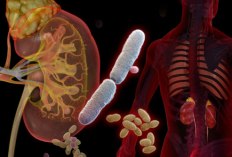Depression
The brain is an often-overlooked erogenous zone. Sexual excitement starts in your head and works its way down. Depression can dampen your desire and can lead to erectile dysfunction. Ironically, many of the drugs used to treat depression can also suppress your sex drive and make it harder to get an erection.
Alcohol
You might consider having a few drinks to get in the mood, but overindulging could make it harder for you to finish the act. Heavy alcohol use can interfere with erections, but the effects are usually temporary. The good news is that moderate drinking — one or two drinks a day — might have health benefits like reducing heart disease risks. And those risks are similar to erectile dysfunction risks, too.
Medications
The contents of your medicine cabinet could affect your performance in the bedroom. A long list of common drugs can cause ED, including certain blood pressure drugs, pain medications, and antidepressants. Street drugs like amphetamines, cocaine, and marijuana can cause sexual problems in men, too.
Stress
It’s not easy to get in the mood when you’re overwhelmed by responsibilities at work and home. Stress can take its toll on many different parts of your body, including your penis. Deal with stress by making lifestyle changes that promote well-being and relaxation, such as exercising regularly, getting enough sleep, and seeking professional help when appropriate.
Anger
Anger can make the blood rush to your face, but not to the one place you need it when you want to have sex. It’s not easy to feel romantic when you’re raging, whether your anger is directed at your partner or not. Unexpressed anger or improperly expressed anger can contribute to performance problems in the bedroom.
Anxiety
Worrying that you won’t be able to perform in bed can make it harder for you to do just that. Anxiety from other parts of your life can also spill over into the bedroom. All that worry can make you fear and avoid intimacy, which can spiral into a vicious cycle that puts a big strain on your sex life — and relationship.
Middle-Aged Spread
Carrying extra pounds can impact your sexual performance, and not just by lowering your self-esteem. Obese men produce less of the male hormone testosterone, which is important for sexual desire and producing an erection. Being overweight is also linked to high blood pressure and hardening of the arteries, which can reduce blood flow to the penis.
Self-Image
When you don’t like what you see in the mirror, it’s easy to assume your partner isn’t going to like the view, either. A negative self-image can make you worry not only about how you look, but also how well you’re going to perform in bed. That performance anxiety can make you too anxious to even attempt sex.
Low Libido
Low libido isn’t the same as erectile dysfunction, but a lot of the same factors that stifle an erection can also dampen your interest in sex. Low self-esteem, stress, anxiety, and certain medications can all reduce your sex drive. When all those worries are tied up with making love, your interest in sex can take a nosedive.
Many different health conditions can affect the nerves, muscles, or blood flow that is needed to have an erection. Diabetes, high blood pressure, hardening of the arteries, spinal cord injuries, and multiple sclerosis can all contribute to ED. Surgery to treat prostate or bladder problems can also affect the nerves and blood vessels that control an erection.
How to Solve Erection Problems
It can be embarrassing to talk to your doctor about your sex life, but it’s the best way to get treated and get back to being intimate with your partner. Your doctor can pinpoint the source of the problem and may recommend lifestyle interventions like quitting smoking or losing weight. Other treatment options are ED drugs, hormone treatments, a suction device that helps create an erection, or counseling.
source: Web MD




















